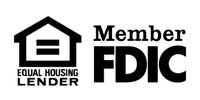Understanding Origination Fees and Discount Points in Mortgage Loans: What You Need to Know
What Are Origination Fees?
Origination fees are charged by a lender to cover the costs of processing your mortgage application. They generally account for the time and effort that goes into underwriting, document preparation, and sometimes loan officer compensation. While not all lenders charge the same origination fees, those that do may structure them differently, which can affect the final amount.
It’s important to know that origination fees can vary based on the lender and loan type. Some lenders bundle these fees into the loan, while others may list them separately. In either case, the purpose remains the same: to cover the administrative costs of getting your loan processed, approved, and funded.
Pros and Cons of Origination Fees
Pros of Origination Fees:
Covering Processing Costs: These fees help the lender manage the resources involved in processing and underwriting your loan.
Tied to Service Quality: When transparently itemized, origination fees can reflect the level of personalized service you’re receiving, especially with more complex or customized loans.
Cons of Origination Fees:
Can Be Costly: Origination fees can add a noticeable amount to closing costs, sometimes totaling thousands of dollars.
May Be Negotiable: Some lenders are willing to negotiate origination fees. Comparing lenders and asking about these fees can sometimes lead to savings.
What Are Discount Points?
Discount points, or simply “points,” are a way for you to pay an upfront fee to reduce the interest rate on your mortgage. Generally, each discount point equals 1% of the loan amount, and paying one point typically lowers your interest rate by approximately 0.25%. This upfront investment can lead to long-term savings by reducing your monthly payment and interest paid over the loan’s term. This can be especially beneficial if you plan to keep the loan for a long time.
For example, if you take out a $200,000 mortgage, paying one point would cost $2,000 upfront. However, it could reduce your interest rate, leading to lower monthly payments and significant savings over time, however, it could end up costing you more if you sell or refinance too early. In typical cases, it could take 5 years to break even on the cost vs. the monthly savings.
Pros and Cons of Discount Points
Pros of Discount Points:
Long-Term Savings: Lowering your interest rate can mean significant savings on interest over the life of the loan, making points an attractive option for buyers planning to stay in their home for many years.
Lower Monthly Payments: By reducing the interest rate, discount points can make monthly payments more affordable, which is helpful for long-term budget planning.
Cons of Discount Points:
Higher Upfront Costs: Points require additional funds at closing, which may not be feasible for all buyers.
Not Ideal for Short-Term Homeowners: If you plan to sell or refinance soon, paying points may not lead to enough savings to justify the upfront cost.
How Local (Community) Banks Differ
Because of their local presence, community banks often take a more personalized approach, which can sometimes mean fewer fees or options to negotiate. Local community banks may be able to work with you on structuring your loan in a way that minimizes extra charges.
If you’re looking to keep your closing costs manageable, your local community bank could be worth exploring as an option. The difference comes down to business models and cost structures. Given the importance of this decision and the amount you’ll be investing, it’s worth exploring your options to see which is better for you.
How to Ask About Fees and Points
Since the purchase of a new home is likely one of the largest financial decisions most people make in their lifetime, it’s a good idea to ask lenders about their fees upfront. Here are some key questions to consider:
Q: Are origination fees included, and if so, can they be negotiated?
Q: How do you structure your discount points?
Q: Are there any additional fees I should be aware of?
It’s also beneficial to request quotes from multiple lenders so you can compare fee structures. This will help you understand where you might save and determine which lender offers the best option for your needs.
Conclusion
While origination fees and discount points are common in the mortgage industry, they’re not a one-size-fits-all expense. With a little research and asking the right questions, you can find a loan structure that aligns with your financial goals. Local community banks can sometimes offer more flexible options, so it’s worth considering them alongside other lenders. The key takeaway? Empower yourself with knowledge and remember that you have options—because when it comes to mortgage fees, understanding them can help you make the best decision for your future.
For personalized mortgage loan advice, it’s always a good idea to consult with a mortgage advisor at Dream First Bank. As a local community bank, we help our customers evaluate their specific situation and guide them toward the best mortgage loan. Contact Dream First Bank today to explore your options and make an informed decision about your mortgage.
